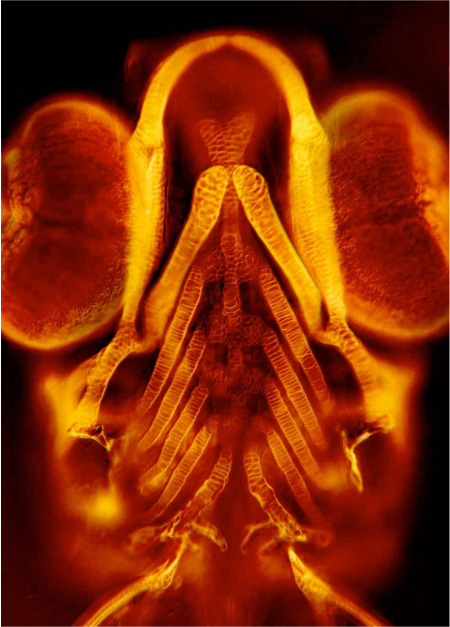Our laboratory is generally interested in the early embryonic development of the vertebrate nervous and musculoskeletal systems. We study zebrafish, small teleost fish that have emerged as a powerful genetic system for studying how genes control early development. The genetic mechanisms we study have important implications for human birth defects and disease as well as craniofacial evolution. Accordingly, our research is currently supported by the National Institutes of Health (NIH) and National Sciences Foundation (NSF).
Living 1 day-old zebrafish embryo and cartilage in a 5 day-old larva
The Graduate Program and How to Apply
Schilling lab students generally enter through our joint program in Cell and Molecular Biosciences but may also apply through our Mathematical and Computational Biology or Interdepartmental Neuroscience gateway programs.

